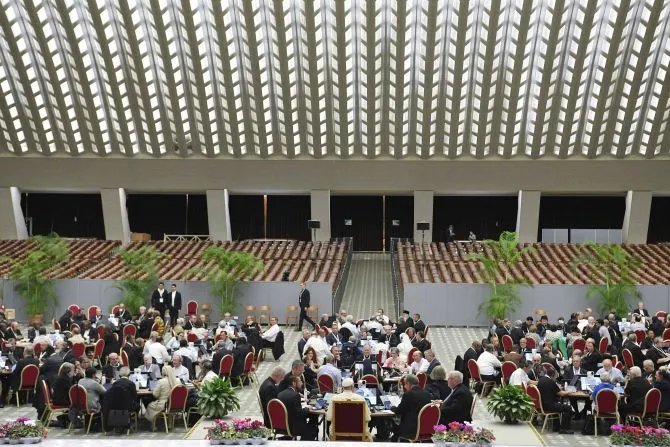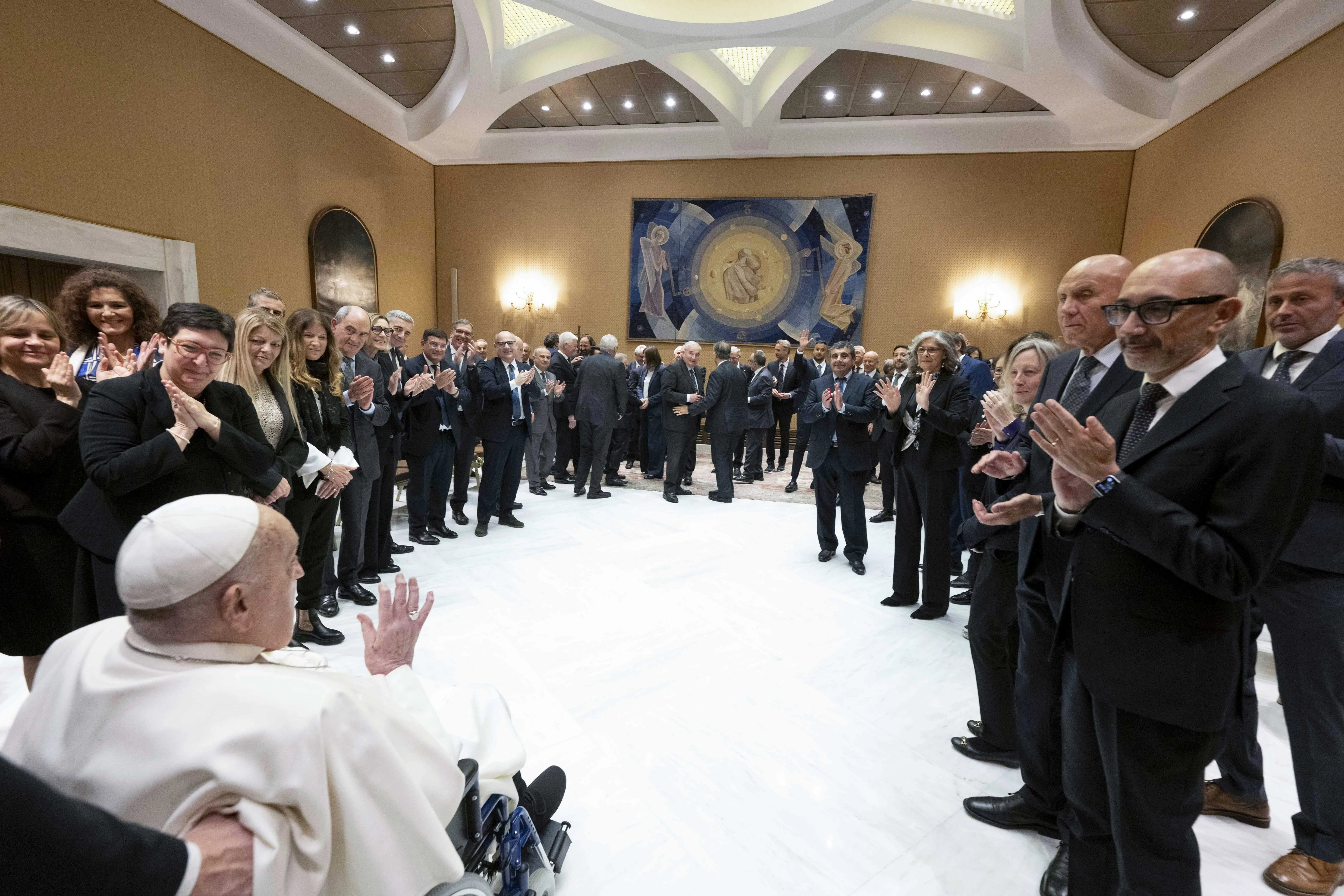Members made the request for “greater discernment” of the Church’s sexual doctrine during the assembly’s discussion of the controversial topic of LGBTQ inclusion. Following the synod’s working document, participants were asked to consider “what concrete steps are needed to welcome those who feel excluded from the Church today because of their status or sexuality.”
Representatives for small groups assigned to the topic shared their table’s report with the wider assembly, while others made speeches in response.
Ruffini said that speeches addressing “sexual identity” were met with “responsibility and comprehension, remaining faithful to the Gospel and the teaching of the Church.” He added that there was widespread agreement that the Church “must reject every form of homophobia” and that the lack of familiarity with the personal journey of LGBTQ-identifying people leads to “many problems.”
Some speakers emphasized the importance of encountering LGBTQ people and developing pastoral ministries “to understand their lives,” said Ruffini, while others “highlighted the importance of remaining in the magisterial teaching of the Church.”
Ruffini said that the climate was not characterized by polarization but by a family-style exchange of views.
“How can we be welcoming for everyone, and, on the other hand, how can we remain faithful to truth?” he said describing the conversation.
The synod spokesman did not disclose which participants were behind the push for “greater discernment” of the Church’s sexual doctrine, but several synod members have already signaled their intent to push for changes on Church teaching on the subject.
German Bishops Georg Bätzing and Franz-Josef Overbeck, for instance, have said they plan to advocate for wider acceptance of the proposals adopted by the controversial German Synodal Way at the Synod on Synodality. The Synodal Way, a non-canonically recognized project of the German Bishops’ Conference and lay employees, approved blessings for same-sex unions this past March.
If matters of doctrine are up for debate at the Synod on Synodality, it would fly in the face of repeated assurances to the contrary made by top officials.
Cardinal Jean-Claude Hollerich, the synod’s relator general, said in August 2022 that the synod “is not meant to change doctrine, but attitudes.”








